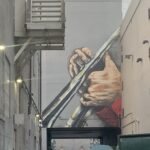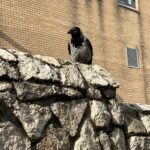December 5th, 2022
Looking back to May
A friend reached out after reading one of these 12 Days posts. She said that the years 2020-2022 felt like five decades. She doesn’t know if she can ever put it all in words. Another reader reached out to share that despite feeling unscathed at the time, minus the fatigue, he was now working with a counselor to process many emotions. Another friend offered that my ‘not remembering’ maybe because I wasn’t focused on the self and sent my “consciousness out,” gave myself “to the encounter in the best possible way.” She said I was so generously there. My friend was talking about visiting my friends in Ireland in March but truer words couldn’t be said about teaching in May. I am also fascinated with the phrasing of the entire experience as an…encounter.
May felt like an avalanche made up of the last two years hitting against whatever in me had been holding students and their families together. While making sure the learning continued. Not just continued, but the joy of learning exceeded all prior creativity when it came to curricular design. Against the sharp narratives of “learning loss.” The noise from this combustion was deafening. It sort of created an internal Tinnitus; I couldn’t really form words to express anything. I didn’t know this then. And I carried on with joy because incredible learning, creative learning, was happening in my classroom. The farther away I got from thinking about my own writing, the more I poured myself into teaching. I had the complete trust of parents: I’d say jump, and they’d reply, how high? There was no antagonism if I brought to their attention any concerns. Perhaps they were struggling too? Maybe they were grateful for my efforts; maybe they were tired too. They thanked me often and then eventually the thanking including “for your service,” like I was a solider. I hadn’t even known I was in a war.
In January I was informed that I had made it as a finalist for the Golden Apple Teaching in Excellence award. I had been anonymously nominated at the end of the beginning of the pandemic. I don’t know when that was. I know the application to accept the nomination was in April or May of 2021. I don’t know how I filled that application out. I have no physical memory of it. I have no mental memory of it. I know we needed a new air conditioning system that May because everything happens at once and May of 2021 was all at once.
May of 2022 began with an entourage of the Golden Apple Foundation coming into my room and surprising me to share the news that I was a winner, along with 6 other educators from the state. My assistant principal was savvy enough to get it all on video. I can still hear the students’ applause and see their feet lift off of the ground as they jumped with joy. It wasn’t just about the last two years; I knew that even in that moment. I don’t know of any other colleague in the profession who has had to experience the things I have experienced in education all because I simply wanted to…teach; teach reading, writing, and thinking. The following two photos are of the class the selection team “observed” via Zoom and speakers and microphones in April. That day we were discussing race, World War Two and how grown-ups don’t know how to have real conversations anymore. This day was when we were reading about World War Two. And something burst open in all our hearts this day. And I believe many of my students from the school year that was August 2021-May 2022 will remain connected as we go our own ways to tackle the challenges of our world.
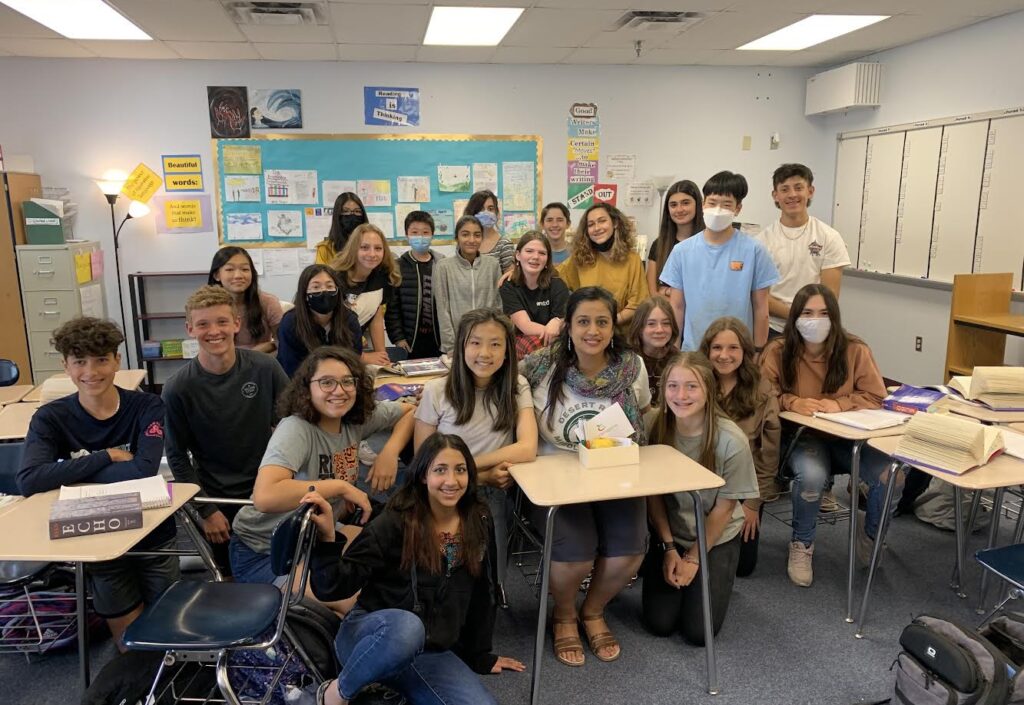
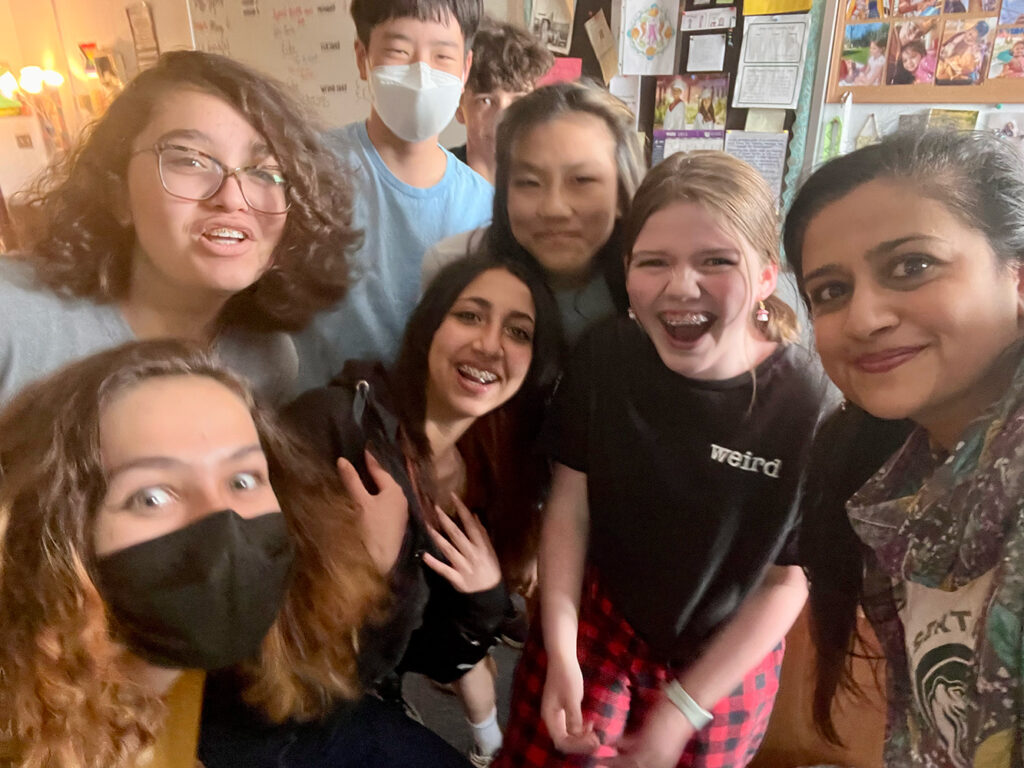
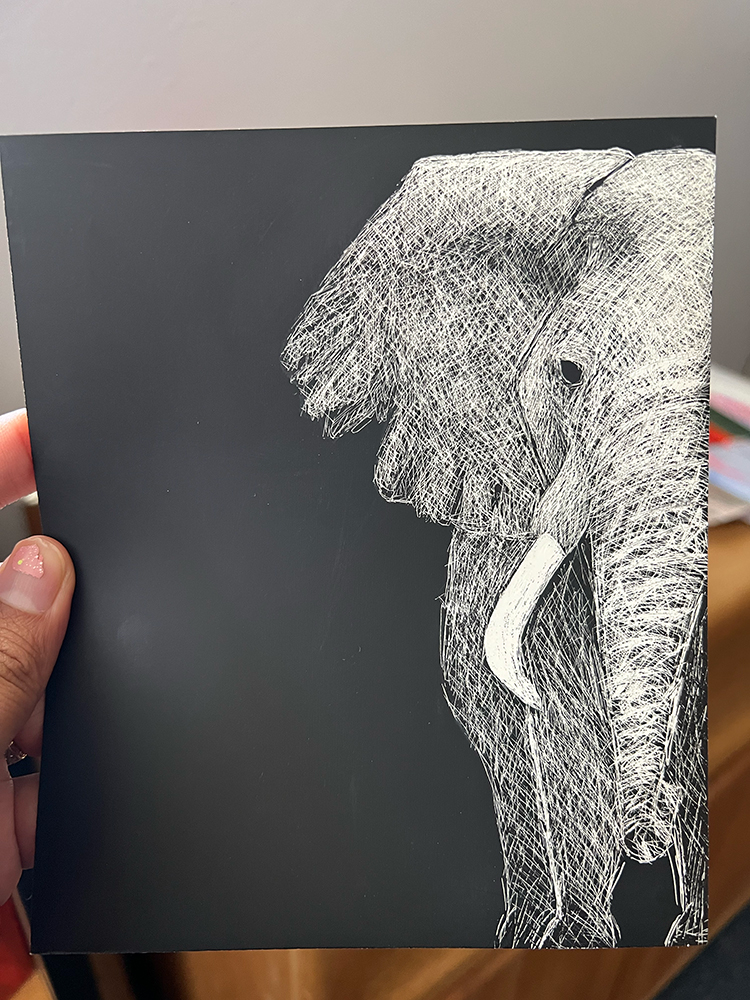
Students know how how much I love elephants and this student, a very quiet, sensitive, exceptionally brilliant young woman, made this for me. I mean look at that!
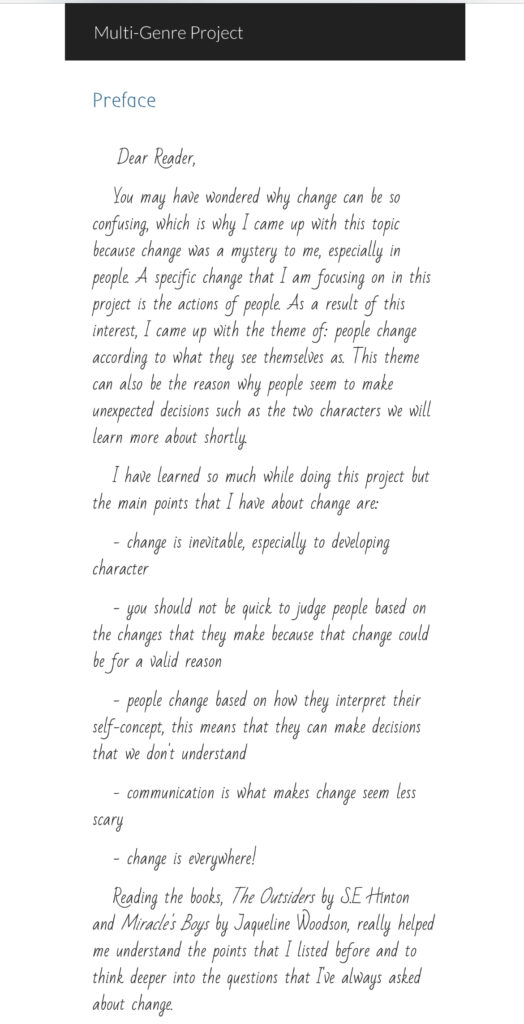
Same student wrote this introduction to her multi-genre portfolio (Yes, I too don’t know how I accomplished teaching multi-genre portfolios, picking one’s own thesis statements, in such a year!)
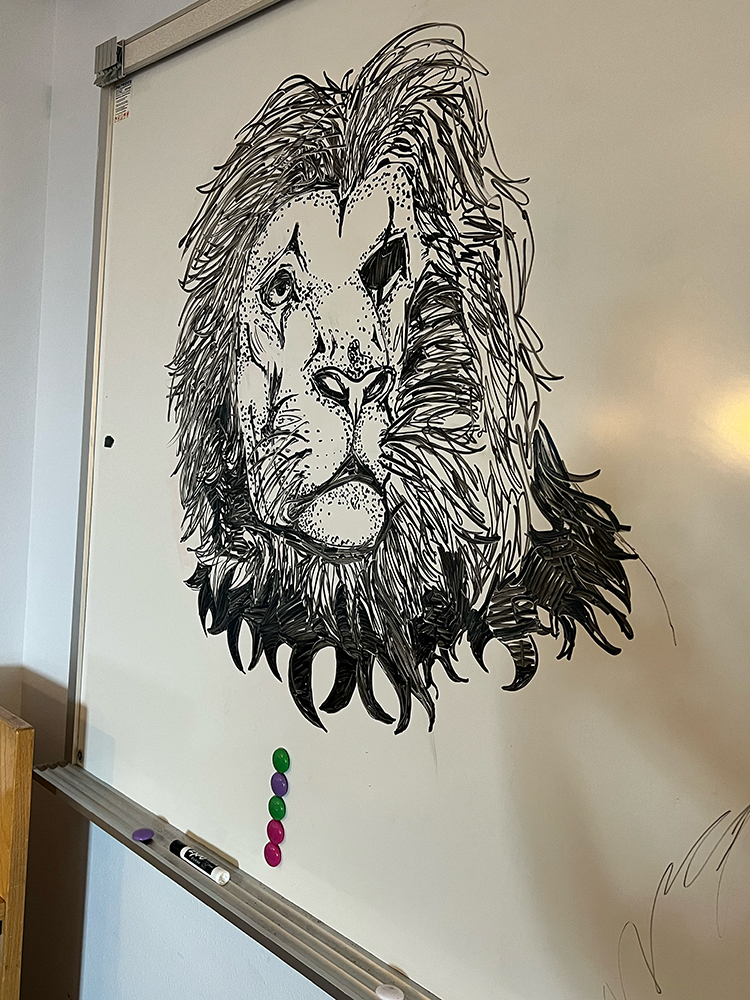
End of the academic year always means drawings and notes on the whiteboard. I am always inspired by how much heart, effort and time the students put in these fully knowing these will be erased before the very last day of school.

From another student created in the woodshop elective class.
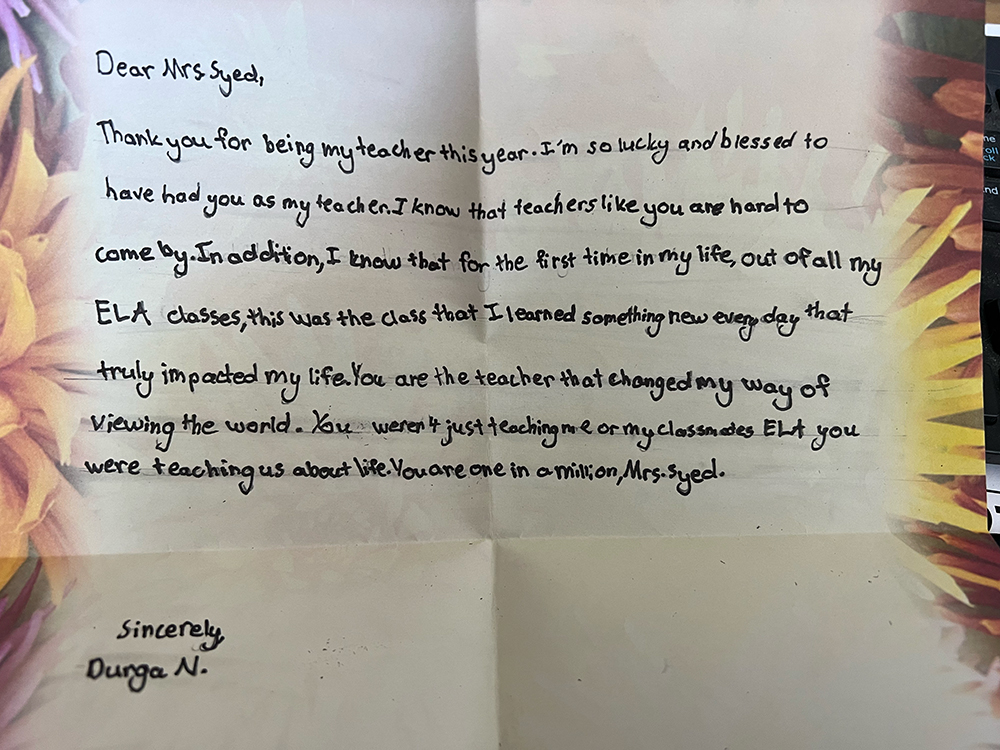
This is one of the many notes I received this May. I share it here as a reminder for myself. Because it was from one of my quietest students, the one who “participated” only if you called on her. I don’t force “participation” on students. There are myriad ways to assess learning without forcing a student to participate in a traditional way. And often I wondered what she was really thinking…”
It was then also in May that I discovered the work of author Tillie Olsen through George Saunders’ Short Story Club via the story “I Stand Here Ironing” which led to buying a used copy of the book Silences.

And while I wondered about the year being quarter over without having revised my novel, without having written a new story, without even thinking about words, without knowing when I would ever find myself in close proximity to words, without so much, in spite of so much, while I wondered all that, without words for any of that wondering, it would be George Saunders’ words in response to “I Stand Here Ironing” which would put in perspective that teaching is an act of love. Yes, of course, for one’s students, but an act of love for the possibility of a better future. Something more than faith, an action. For those who know me well know that I am often a glass-half-empty kind of person; therefore, this realization, that teaching is an act of love, is a very optimistic act.
George Saunders:
“So, yes: we often think that, to become better writers, we have to learn to, you know – write better. And that’s true – we have to get better at embodying what we know in more fraught fictional situations, expressed in crisper language, and so on. But this story reminds me that there is another way we can write better stories, and that is to live larger lives. We can understand the invention of stories as a way of adjusting our gaze, turning it away from what is easy and common and habitual, in the direction of what really matters.
How do we do this, ‘live larger lives?’
Well, right, exactly. How do we?
Olsen is helping us to know how, here, by way of the story. This story is, for me, like a tuning fork. I read it and my moral pitch is revitalized. I know, briefly, or again, what matters and what doesn’t.
Love matters. Love and all that would undercut it matters. Fear matters, poverty matters, listening matters. That moment when we fleetingly realize how we could love someone better, and then take action (or fail to): that matters.”
Sometimes living large happens in the quietest ways. I got the Golden Apple award (the ceremony was in November of this year) and it was anything but quiet. It was indeed large: news, interviews, applause, networking, award money. But I have worked many years without any recognition and there are many very good teachers who will continue to work without any large-living awards.
When I treat it all like an ‘encounter’, I feel love and affection for these very challenging times. Not because I wish to distance myself from any of it, not because I have processed it all, not because I am over the shock of many things, but because to have survived that time with love still in one’s heart is indeed some kind of living large.
